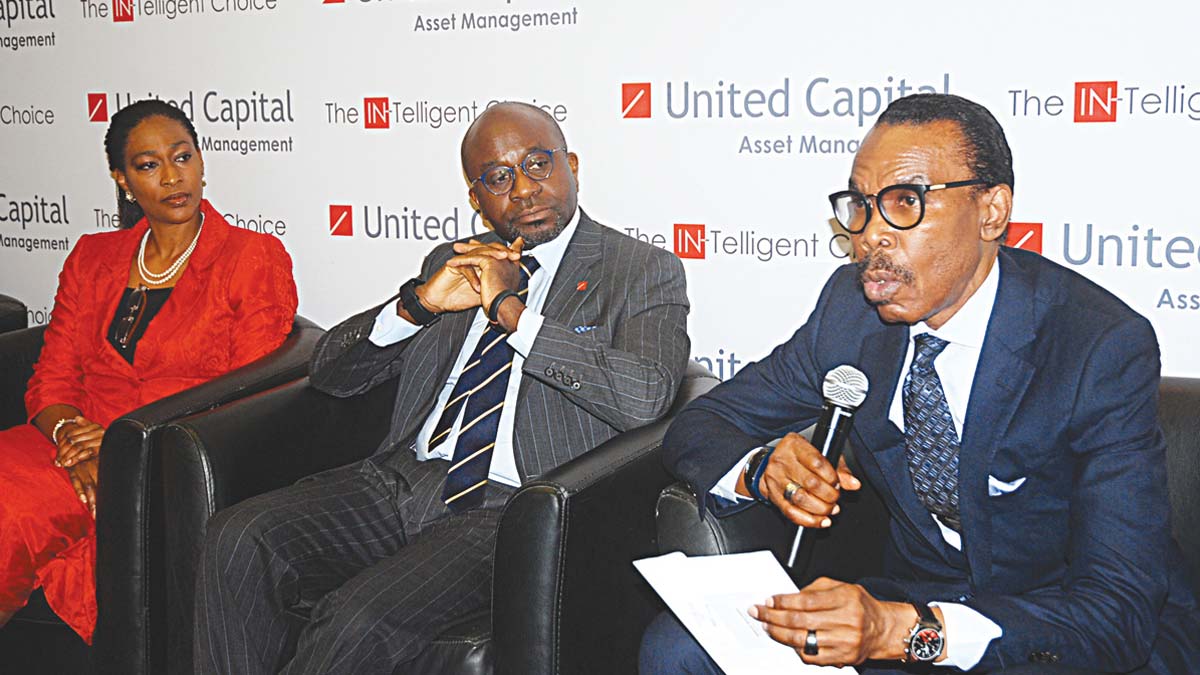- United Capital Hinges Economic Recovery on policy
The nation’s economic rebound has been hinged on policy acceleration, even as participants at the investors’ forum organised by United Capital Plc urged government at all levels to ensure that reforms and programmes are pursued vigorously.
Also, stakeholders stressed the need to promote national savings culture, noting that the level of savings in an economy has a multiplier effect on investment.
According to them, persistent slow economic progress could permanently damage medium-term growth prospects, amid enormous investment opportunities that could attract both indigenous and foreign investors.
They, however, maintained that appropriate structures must be put in place to reinforce investors’ confidence.
The Managing Director of Financial Derivatives, Bismarck Rewane, stated that people withdraw their investments in any economy that is shrouded in uncertainty.
“People spend and invest when the macro economic situation is competitive, but they withdraw when there is uncertainty, especially where there is poor policy in action. United Kingdom grows faster because of conscious decision-making. We need to make predictable decisions to strengthen the economy,” he said.
The Managing Partner, Duke & Bob-Manuel, Mrs. Onari Duke, said government needed to focus on intensifying its programmes. According to her, urgent intervention is needed to avert the collapse of some segments, especially the industrial sector.
“Government needs to focus and strengthen the industrial sector and harness its policies to achieve a stable system, encourage investment and shorten the period for slow movement in growth,” she added.
The Managing Director, United Capital Investment, Bunmi Akinremi, explained that practical steps should be taken to promote made-in-Nigeria goods in order to stabilise the economy.
“We need to make the nation productive. If everything we consume and wear is made by Nigerians, production will increase. We make sure that all the things we consume in Nigeria and the sub-region is dominated by what happens in Nigeria,” he said.
Also, United Capital yesterday unveiled ‘Women For Wealth Fund’, an investible product tailored to the needs of women.The Group Chief Executive Officer, Oluwatoyin Sanni, at the launch of the product said the mutual fund enables men and women to invest in the nation’s capital markets particularly in publicly quoted companies.
In addition, the fund was designed to enhance the financial security of women; encourage them to imbibe a progressive savings culture; increase women’s participation in the capital markets; and create a sustainable foundation for their financial empowerment and development in the country.

 Naira3 weeks ago
Naira3 weeks ago
 News4 weeks ago
News4 weeks ago
 Naira4 weeks ago
Naira4 weeks ago
 Naira3 weeks ago
Naira3 weeks ago
 Jobs3 weeks ago
Jobs3 weeks ago
 Travel3 weeks ago
Travel3 weeks ago
 Naira3 weeks ago
Naira3 weeks ago
 Investment4 weeks ago
Investment4 weeks ago






























